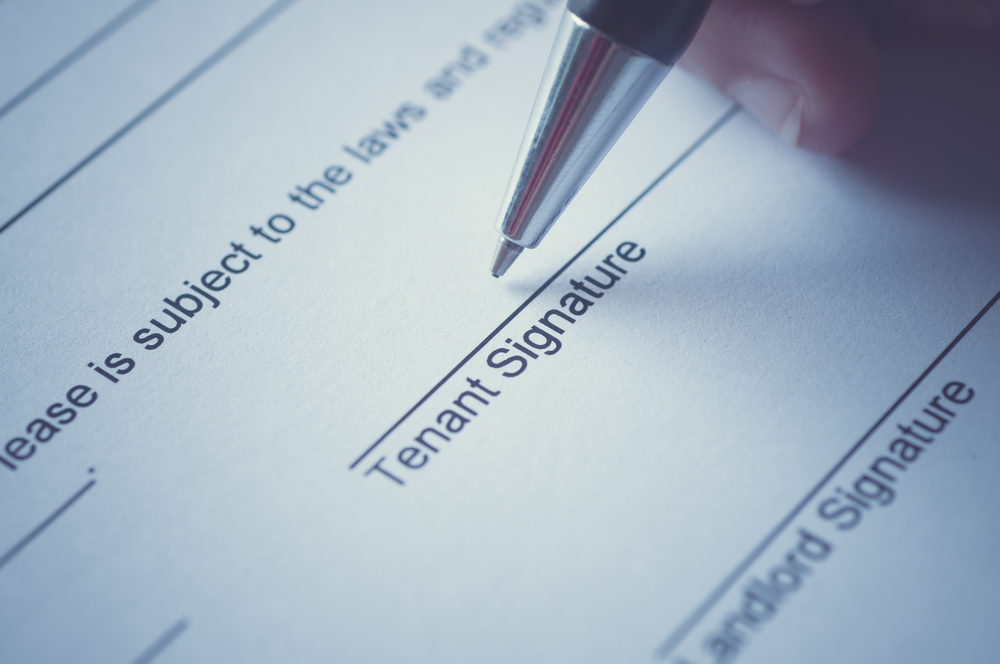Finding the perfect student accommodation can be stressful, but once you’ve found it, it’s all plain sailing, right?
Not quite.
Before you move in, you’ll need to deal with your student tenancy agreement.
This can seem intimidating if you’ve never lived away from home before because it’s a legally binding document between you and your landlord.
But it’s not just to protect your landlord. It’s also to protect you as the tenant and to help you understand your responsibilities while staying in your accommodation.
It’s important you read this tenancy agreement carefully and make sure you understand what you’re agreeing to before signing on the dotted line.
To help, here are the 7 key things you should check before signing.
1. Who’s responsible for the rent?
If you move into student accommodation alone, you’ll be responsible for paying the rent every month.
You should check the rent amount and make sure it adds up to the value you’d agreed to, either with your letting agency or landlord. (Make sure there are no hidden charges).
If you move into student accommodation with a group, then is the rent charged on a per-room basis (making you responsible for your own rent), or is it treated as a full-house responsibility?
If rent is based on the house rather than rooms, you’ll need to organise between you who will collect and pay the rent (it might be worth organising a house bank account if you can get one).
You must also understand the obligations you put on your guarantor if you fail to keep up with payments.
2. Does it include energy bills?
Overall, student accommodation includes energy bills if you get housing through your university or through a specific student-letting agency or accommodation provider.
However, if you decide to rent private accommodation, it’s possible you’ll become responsible for all bills, including utilities.
This can be quite a shock if you get a bill you weren’t expecting.
3. Does it include broadband?
Again, most student accommodation providers and dedicated halls of residence will include your broadband as part of the tenancy.
This means you won’t have any responsibility for the monthly bills (although you may be liable for additional charges on TV packages – for example, movie rentals and box office)
It’s worth checking, though, because private landlords could make broadband your responsibility, in which case you’ll need to source a provider and arrange for payments to be made.
You may also need to get your landlord’s permission for certain parts of the broadband installation, for example, installing a Sky dish on the property.
4. How long does your tenancy last?
Like private tenancies, student tenancies tend to last for a fixed 12 month period – usually from July 1 to June 30.
However, make sure you check the start and end date of your tenancy, so you know exactly when you’ll need to start paying rent and – more importantly – when you’ll need to move out.
The last thing you want is a rush at the end of your agreement to get everything out of the accommodation because you thought you had more time.
5. Are there any tenancy break clauses?
You can’t predict what will happen when you start university, and you might find yourself in a position where you must end your tenancy agreement early.
If you’ve got a fixed-term agreement, this isn’t always possible.
To break your agreement early, you’ll need a break clause written into the agreement, stating how much notice you need to give to cancel the tenancy.
Without this, you (or your guarantor) will be liable to pay the rent for the duration of the agreement, even if you move out.
The only other way to avoid paying is if your landlord agrees to early termination.
6. Who’s responsible for repairs and maintenance?
Dealing with repairs and maintenance can be time-consuming (and costly) affairs.
And when it comes to rented or student accommodation, it can be difficult to understand whether responsibility lies with you or the landlord.
Landlords are legally required to provide safe, secure property, so they’ll be responsible for the structural integrity of the building.
Typically speaking, landlords are also responsible for the upkeep and maintenance of major appliances like the boiler and heater.
As a tenant, you’ll be responsible for reporting issues with these appliances to the letting agency or landlord, but you won’t have to arrange or pay for repairs.
Depending on what’s written in the tenancy agreement, you’ll likely be responsible for the general upkeep of the property and could be liable to pay for any excess wear and tear, or damage that you’re deemed responsible for.
Again, responsibilities can differ depending on the tenancy agreement, so be sure to read it carefully and seek advice if you’re unsure about anything.
7. Is your deposit protected?
When you sign a student tenancy, your deposit should be protected as part of the Tenancy Deposit Scheme (TDS).
This is a government-sanctioned scheme that protects a tenant’s deposit to ensure they get it back at the end of an agreement.
When looking through your tenancy agreement, make sure you understand how the TDS works, including when you’ll get your deposit back and how to deal with any disputes.
Find your ideal student tenancy in Liverpool with Caro Lettings
We want students to feel at home when staying in our student accommodation in Liverpool.
Not only do we provide a range of spacious student homes in popular areas around the city, we provide plenty of support, advice and guidance to students moving away from home for the first time, or those unsure about what to expect with a student tenancy.
We’re now taking bookings for 2023/24, so if you’re interested in Liverpool student living and haven’t found the perfect place to live, get in touch with our team today.
